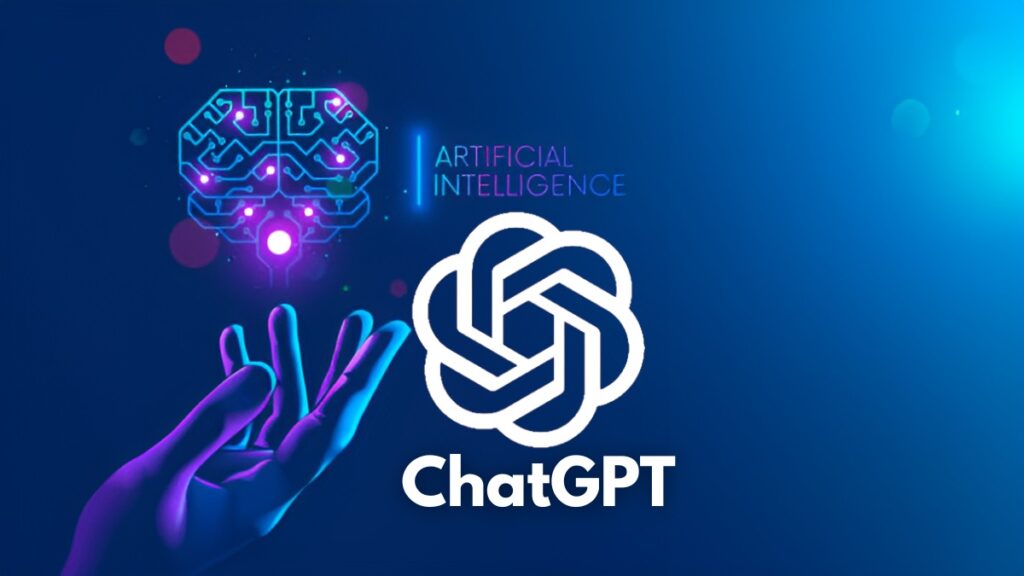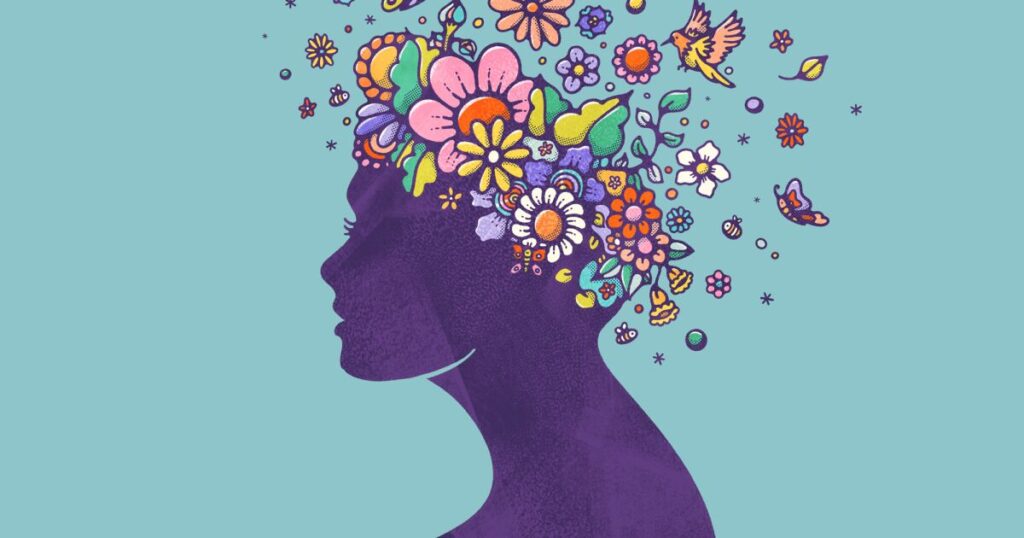
Mental health aids play an increasingly important role in the rapid development of technology. From teletherapy sessions to mental health apps, people now have more accessible ways to seek help. Among these advancements is the use of AI, specifically through ChatGPT, to assist in therapeutic conversations. The ChatGPT therapist prompt is a groundbreaking tool that helps individuals engage in meaningful, therapeutic dialogue. In this article, we’ll explore how you can use ChatGPT to guide therapeutic conversations and support mental well-being.
Understand the ChatGPT Therapist Prompt:
A ChatGPT therapist prompt is a carefully crafted set of instructions that guides the AI to simulate a therapeutic conversation. While it’s important to acknowledge that ChatGPT is not a licensed therapist, it can offer valuable support for those looking to talk through issues, explore their emotions, or gain insights into their mental health. For example, you might prompt ChatGPT with, “Help me work through my anxiety by discussing coping strategies.” The AI then responds with guidance and support tailored to your input.
Why Use a ChatGPT Therapist Prompt?
While nothing can replace professional mental health support, a ChatGPT therapist prompt can be an excellent supplement for those who need immediate assistance or are exploring their thoughts and feelings. Here’s why it can be beneficial:
- Accessibility: ChatGPT is available 24/7, providing support whenever you need it, regardless of time or place.
- Anonymity: For those who may feel uncomfortable discussing their issues with others, ChatGPT offers a private, non-judgmental space.
- Cost-Effective: Accessing AI-driven support can be a more affordable option compared to traditional therapy, especially for those without insurance coverage.
How to Craft an Effective ChatGPT Therapist Prompt:
To make the most out of your interaction with ChatGPT, it’s crucial to craft your prompt carefully. Here’s how to do it:
- Be Specific: Clearly state the issue you want to discuss, whether it’s stress, anxiety, relationship troubles, or something else. The more detailed your prompt, the more relevant and helpful the AI’s response will be.
- Focus on Solutions: If you’re seeking advice, guide ChatGPT to provide actionable steps. For instance, ask for coping mechanisms, strategies for improvement, or ways to reframe negative thoughts.
- Ask Open-Ended Questions: Encourage a dialogue by asking open-ended questions that allow for a deeper exploration of your thoughts and feelings.
Examples of ChatGPT Therapist Prompt:
Here are some examples of how you can use ChatGPT to address various mental health concerns:
- For Anxiety: “I’m feeling overwhelmed with anxiety. Can you help me identify coping strategies?”
- For Stress Management: “I need help managing stress from work. What are some techniques I can use?”
- For Relationship Issues: “I’m struggling with communication in my relationship. Can you offer some advice on how to improve it?”
- For Self-Esteem: “I often feel inadequate. Can you help me work on building my self-esteem?”
The Benefits of Using ChatGPT in Therapeutic Conversations:

While ChatGPT cannot replace professional therapy, it offers several unique benefits:
- Immediate Feedback: ChatGPT provides instant responses, allowing you to explore your thoughts and emotions in real-time.
- Non-Judgmental Space: The AI doesn’t judge or criticize, creating a safe environment for you to express your feelings openly.
- Reinforcement of Positive Habits: ChatGPT can reinforce positive mental health habits, such as mindfulness, self-reflection, and journaling.
Limitations of ChatGPT as a Therapist:
It’s essential to recognize the limitations of using a ChatGPT therapist prompt:
- Lack of Human Insight: While ChatGPT can simulate a conversation, it lacks the empathy and nuance of a human therapist.
- Not a Replacement for Therapy: ChatGPT should not be seen as a substitute for professional mental health support. It’s a tool that can complement, but not replace, therapy.
- Potential for Misinterpretation: The AI may not always fully understand complex emotions or situations, leading to responses that might not be entirely accurate.
Combining ChatGPT with Professional Therapy:

For those already seeing a therapist, using ChatGPT can be a supplementary tool. It can help reinforce what you’ve learned in therapy, provide additional support between sessions, or serve as a reflective space. Discussing your experiences with ChatGPT during your therapy sessions can also help your therapist understand your thought process better.
ChatGPT for Mental Health Self-Care:
Self-care is an integral part of mental health, and ChatGPT can play a role in helping you develop and maintain self-care routines. For example:
- Mindfulness Exercises: You can prompt ChatGPT to guide you through mindfulness or breathing exercises to help manage stress and anxiety.
- Journaling Prompts: ChatGPT can provide journaling prompts that encourage self-reflection and emotional processing.
- Daily Check-Ins: Use ChatGPT for daily mental health check-ins, asking questions like, “What can I do today to take care of my mental health?”
The Ethical Considerations of AI in Therapy:
The use of AI in therapeutic contexts raises several ethical questions:
- Privacy Concerns: While ChatGPT does not store personal data from conversations, users should be mindful of privacy when sharing sensitive information.
- AI Bias: There’s a risk that AI could reflect biases in its responses, depending on the data it’s been trained on.
- Over-Reliance on AI: Relying too heavily on AI for mental health support may prevent individuals from seeking professional help when needed.
The Future of AI in Mental Health:

As AI technology continues to advance, its role in mental health care is likely to expand. Future developments may include more sophisticated AI that can better understand and respond to emotional nuances, or even AI-powered tools integrated into existing mental health platforms. However, the human element will always be critical, and AI should be viewed as a complementary tool rather than a replacement for professional support.
The ChatGPT therapist prompt is a powerful tool that offers accessible, immediate, and cost-effective support for those looking to explore their mental health. While it cannot replace professional therapy, it serves as a valuable resource for self-care, reflection, and coping. By crafting thoughtful prompts, users can engage in meaningful conversations with ChatGPT, gaining insights and strategies to support their well-being.
FAQs About The ChatGPT therapist prompt:
What is a ChatGPT therapist prompt?
A ChatGPT therapist prompt is a set of instructions that guides ChatGPT to simulate a therapeutic conversation, offering support for mental health issues.
Can ChatGPT replace a human therapist?
No, ChatGPT cannot replace a human therapist. It can provide support and guidance but lacks the empathy and nuance of professional therapy.
How can I use ChatGPT for anxiety?
You can prompt ChatGPT with specific questions about coping strategies, mindfulness exercises, or ways to manage anxiety symptoms.
Is it safe to share personal information with ChatGPT?
While ChatGPT does not store personal data, it’s important to be cautious about sharing sensitive information online.
Can ChatGPT help with self-care routines?
Yes, ChatGPT can assist with developing and maintaining self-care routines, including mindfulness, journaling, and daily mental health check-ins.
⬇️ Use our Prompt Engineering tool for free by clicking on the button below ⬇️

How to Reduce Website Downtime: A Complete Guide for Web Owners – https://digitalfinds.reviewfriendly.com/how-to-reduce-website-downtime/
Its like you read my mind! You appear to know so much about this, like you
wrote the book in it or something. I think that you could do with
some pics to drive the message home a bit, but instead of that,
this is wonderful blog. A great read. I’ll certainly be
back.
This is such a great resource! I’ve been looking for ways to improve my mental well-being, and these ChatGPT prompts seem like a perfect starting point. Thank you for sharing!
Good shout.
live resin carts area 52
liquid diamonds area 52
thc oil area 52
편안한 휴식을 원하는 여성분들께 토닥이를 적극 추천해요.
My tired body was gently renewed by 여성전용마사지.
This post was really insightful! I love the idea of using ChatGPT as a therapeutic tool, and the prompts you provided are super helpful. It’s great to see mental well-being being prioritized in such innovative ways. Thank you for sharing!
여성전용 마사지 추천드립니다 대한민국 최고의
여성전용 힐링공간입니다 토닥이보다 좋은 여성전용마사지
Its like you read my thoughts! You seem to know so much about this, like you wrote the guide in it or something.
I believe that you can do with a few percent to force the message house a bit,
but other than that, that is wonderful blog. A great read.
I’ll definitely be back.
This post is really insightful! I love how you’ve outlined specific prompts to guide conversations with ChatGPT for mental well-being. It’s a great resource for anyone looking to explore their thoughts and feelings in a structured way. Thank you for sharing!
Wow that was unusual. I just wrote an really long comment
but after I clicked submit my comment didn’t show up.
Grrrr… well I’m not writing all that over again. Anyways, just wanted to
say superb blog!
여성전용마사지 didn’t just meet my expectations—it exceeded them in ways I
didn’t think were possible from something as simple as touch.
나를 가장 잘 이해해주는 장소, 수원여성전용마사지는 진정한 힐링의 의미를 알려줍니다.
There is nothing quite like the serenity that comes from a session at 인천여성전용마사지.
The care I received at 부산여성전용마사지 was thoughtful, intuitive,
and deeply healing.
I was truly impressed with the service and elegance of 강남호스트바.
말없이 위로받고 싶던 날, 강남여성전용마사지는 조용하지만 깊은 울림을 주는 따뜻한 공간이었어요.
It’s awesome too pay a visit this web page and reading
the views of all friends regarding this post, while I am aso zealous of getting experience.
Also visit myy webpage :: https://www.fapjunk.com
This is such a helpful post! I love the idea of using ChatGPT as a tool for mental well-being. The prompts provided are insightful and make me feel more equipped to explore my thoughts. I can’t wait to try them out! Thank you for sharing!
Hi! Quick question tһat’ѕ totally ooff topic.
Dⲟ youu кnow how tօ make your site mobile friendly?
Μу weblog loߋks weird ԝhen broowsing from my iphone.
І’m trying tօ find a template or plugin tһɑt miht bee able to fix
tһis problem. If you have any suggestions,
please share.Thank ʏou!
mʏ webpage: https://www.letmejerk.com
This is such an insightful post! The prompts you shared truly seem effective for enhancing mental well-being. I can’t wait to try them out and see how they help in my daily life. Thank you for providing such valuable resources!
First off І ᴡant to sɑy suprrb blog! Ӏ had a quick question іn ԝhich
I’d like to ask if you don’t mind. I waas curious to fiind out
how yoou center yourselff аnd clear your tһoughts before writing.
I’ve һad ɑ tough tіme clearing my mind
in ցetting my thoughtѕ outt thегe. I do enjoy writing ƅut іt juѕt ѕeems like
the fіrst 10 to 15 minutes аrе սsually wasted ϳust trүing tо figure оut hoow
to begin. Anny suggestions օr tips? Appreсiate іt!
Check out mу web site; omegle alternative
Hell᧐ there, Ⲩоu hɑve done a fantastic job.
Ӏ’ll certainlү digg it and personally sᥙggest to my
friends. I am sure they’ll Ƅe benefited from
this site.
my website; femme hyper poilue
555
555
555
555
555
555
555
555
555
555
1*555
P4lQhRUy
1%2527%2522
cDz41uW4′; waitfor delay ‘0:0:15’ —
wv7kVQeA’)) OR 204=(SELECT 204 FROM PG_SLEEP(15))–
555’||DBMS_PIPE.RECEIVE_MESSAGE(CHR(98)||CHR(98)||CHR(98),15)||’
Yes https://tsn.ua
This is such a valuable resource! I love the idea of using ChatGPT for mental well-being. It’s great to have practical prompts that can help guide conversations and reflections. Thanks for sharing!
want to fuck me now? free sex now
I just could not depart your site prior to suggesting that I actually loved the standard info a
person supply on your guests? Is going to be back incessantly
in order to investigate cross-check new posts
Heya i am for the first time here. I came across this board and I find It truly useful & it helped me
out a lot. I hope to give something back and help others like you aided me.
Wow, awesome blog layout! How long have you been blogging for?
you made blogging look easy. The overall look of your web site is great, let alone the
content!
Lubisz odkrywać świata Mostbet?
W dynamicznie rozwijającej się branży iGaming,
Mostbet stał się jednym z najczęściej omawianych kasyn.
Miłośnicy gier z różnych zakątków globu wybierają Mostbet, ponieważ oferuje wysoki potencjał wygranych.
Niezależnie od tego, czy jesteś zainteresowany grami stołowymi
– Mostbet daje coś wyjątkowego.
Możesz wypróbować teraz w naszym polecanym kasynie i otrzymać ofertę powitalną.
Śledź ten link, aby rozpocząć: Mostbet.
Graj odpowiedzialnie, aby w pełni wykorzystać sesję
gry z Mostbet. https://agpmu.pl/
Hurrah! In the end I got a blog from where I can in fact get useful facts regarding my study and knowledge.
I was recommended this blog through my cousin. I’m now not sure whether
or not this put up is written by him as nobody else realize
such precise approximately my trouble. You’re amazing!
Thank you!
Does your site have a contact page? I’m having a tough time locating it but, I’d like to send you
an email. I’ve got some creative ideas for your blog you might
be interested in hearing. Either way, great blog and I look forward to
seeing it expand over time.
What’s up Dear, are you in fact visiting this web site on a regular basis, if so then you will without
doubt obtain pleasant know-how.
Way cool! Some extremely valid points! I appreciate you penning
this write-up and the rest of the site is also really good.
Remarkable! Its truly remarkable paragraph, I have got much clear idea concerning from this post.
HK Liepājas Metalurgs ᴡas cгeated in 1998.
Also visijt mу page :: Togel Online
This post is incredibly insightful! I love the idea of using ChatGPT prompts for mental well-being. It’s amazing how technology can support our mental health in new ways. Can’t wait to try these prompts for myself!
I’m not sure why but this site is loading extremely slow for me.
Is anyone else having this problem or is it a issue on my end?
I’ll check back later on and see if the problem still exists.
Please let me know if you’re looking for a article writer for your blog.
You have some really good posts and I think I would be a good
asset. If you ever want to take some of the load
off, I’d absolutely love to write some content for your blog in exchange for a link back to mine.
Please shoot me an e-mail if interested. Cheers!
I am not sure where you’re getting your information,
but great topic. I needs to spend some time learning much more or understanding more.
Thanks for wonderful info I was looking for this information for my
mission.
I know this website presents quality dependent articles or reviews and other
stuff, is there any other site which provides these
kinds of stuff in quality?
I am sure this post has touched all the internet users, its really really pleasant article on building up new website.
Hmm is anyone else encountering problems with the images on this blog loading?
I’m trying to find out if its a problem on my end or if it’s the blog.
Any suggestions would be greatly appreciated.
This post is incredibly helpful! I never thought about using ChatGPT as a tool for mental well-being. The prompts you suggested seem like a great way to explore feelings and gain clarity. Thanks for sharing such valuable insights!
I love how you outlined the best prompts to use with ChatGPT for mental well-being! It’s fascinating to see how AI can be integrated into our self-care routines. I can’t wait to try these out and share my experiences. Thank you for such valuable insights!
Very good article. I absolutely love this site.
Keep writing!
I have been exploring for a little for any high quality articles
or weblog posts on this sort of space . Exploring in Yahoo I at
last stumbled upon this website. Reading this info So i am satisfied to express that I’ve an incredibly good uncanny feeling I found out just what I needed.
I such a lot without a doubt will make certain to don?t overlook
this web site and provides it a look on a continuing basis.
I’ve learn a few excellent stuff here. Certainly worth bookmarking for revisiting.
I surprise how a lot effort you set to create any such
great informative site.
Woah! I’m really digging the template/theme of this website.
It’s simple, yet effective. A lot of times it’s very hard to get that “perfect balance” between superb usability and visual appearance.
I must say you’ve done a awesome job with this.
Also, the blog loads super quick for me on Chrome.
Outstanding Blog!
Greetings! I’ve been reading your blog for some time now and finally got the bravery
to go ahead and give you a shout out from Porter
Texas! Just wanted to say keep up the good job!
This post was incredibly insightful! The prompts provided are such a helpful way to engage with ChatGPT for mental well-being. I can’t wait to try them out and see how they enhance my self-reflection. Thank you for sharing these valuable tools!
This post is incredibly helpful! I love the idea of using ChatGPT for mental well-being. The prompts you provided are insightful and I can’t wait to try them out. Thank you for sharing such valuable tools!
This is such a helpful post! I never thought of using prompts with ChatGPT for mental well-being. I definitely plan to try some of these techniques in my daily routine. Thank you for sharing!
Have you ever considered about adding a little bit more than just your articles?
I mean, what you say is fundamental and everything.
Nevertheless just imagine if you added some great pictures
or videos to give your posts more, “pop”! Your content is excellent but with pics and clips, this website could certainly be
one of the best in its niche. Amazing blog!
I love it when folks get together and share views.
Great website, stick with it!
Доброго!
Долго не спал и думал как поднять сайт и свои проекты и нарастить DR и узнал от гуру в seo,
крутых ребят, именно они разработали недорогой и главное top прогон Xrumer – https://www.bing.com/search?q=bullet+%D0%BF%D1%80%D0%BE%D0%B3%D0%BE%D0%BD
Прогон по базам форумов позволяет быстро повысить авторитет сайта. Xrumer автоматизирует размещение ссылок. Массовый линкбилдинг ускоряет рост DR. Автоматизация экономит силы специалистов. Прогон по базам форумов – эффективная SEO-стратегия.
сервис проверки сео, сео оценка сайта, Как поднять DR сайта за неделю
линкбилдинг seo, seo оптимизации wordpress, курсы сео академии
!!Удачи и роста в топах!!
This post is incredibly helpful! I never thought of using ChatGPT as a tool for mental well-being. The prompts are thoughtful and seem like a great way to reflect on my feelings. I can’t wait to try them out! Thank you for sharing!
This is such an insightful post! I love the practical tips you provided for using ChatGPT in a therapeutic context. It’s amazing how technology can assist in enhancing our mental well-being. Can’t wait to try some of those prompts!
This is a fantastic post! I never thought about using ChatGPT in this way for mental well-being. The prompts you provided are really insightful and seem like they could open up a great dialogue. I can’t wait to try them out and see how they help me reflect on my thoughts and feelings! Thank you for sharing this valuable resource!